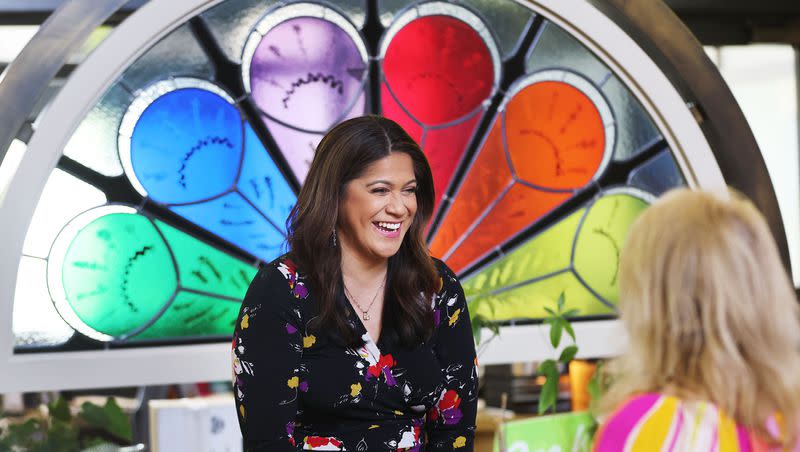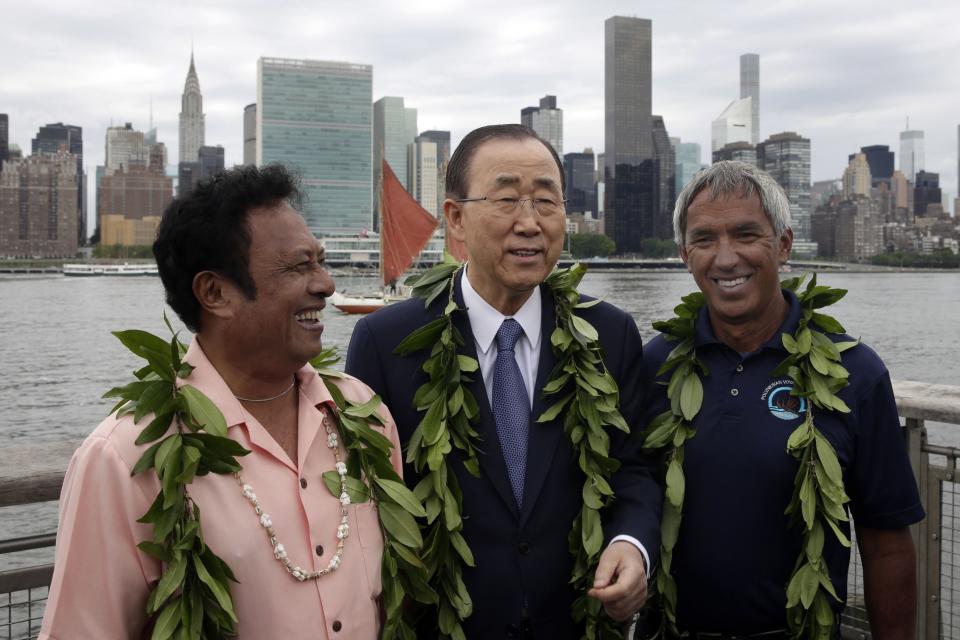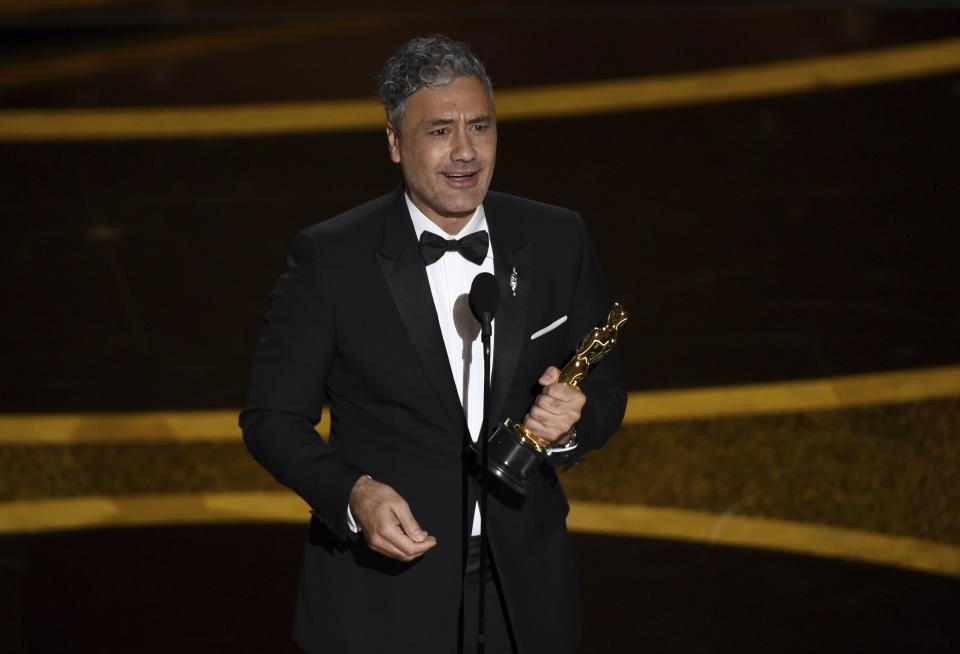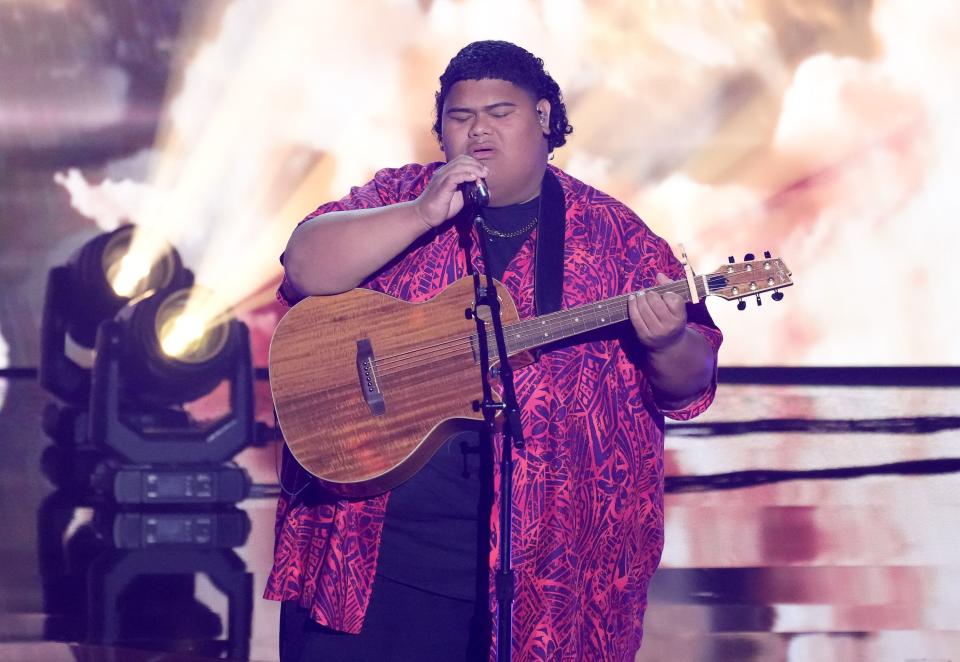Polynesian pioneers: Modern-day trailblazers

- Oops!Something went wrong.Please try again later.
- Oops!Something went wrong.Please try again later.
- Oops!Something went wrong.Please try again later.
- Oops!Something went wrong.Please try again later.
Tamara Vaifanua smiles wide when she recounts childhood memories.
With the sun high in the sky, and the scent of sweet barbecue simmering in the heat, Vaifanua remembers summer ward activities in 1970s Utah, when she and her family were part of the first Samoan Latter-Day Saint congregation in the state.
From days playing games as a child, to becoming the first TV news anchor of Samoan descent in Utah, Vaifanua said her heritage has impacted every decision she’s made.
Regarding her parents and ancestors, Vaifanua told the Deseret News, “I don’t ever want to do anything that I feel would be a disservice to them. I’ve always wanted to make my family proud.”
When she thinks of her heritage, she’s brought back to simple activities, like cookouts and going to the neighborhood park, “all within our little, tight-knit community.”
The New World Encyclopedia said the Polynesian population is about 3 million people globally. Compared to the world population of about 8 billion found in the World Population Review, Polynesians make up a small percentage of the world.
Even with a low population, Polynesian presence is growing across the media, thanks to Pacific Islanders who have made/are making their mark in history, just like Vaifanua.
In honor of Asian Americans and Pacific Islanders Heritage Month, which is May, consider these other Polynesian pioneers who’ve impacted the world.
‘High Chief’ Peter Maivia
Before Dwayne “The Rock” Johnson became famous, his grandfather, Peter Maivia, was an international World Wrestling Entertainment sensation.
Known by his stage name High Chief Peter, the World Wrestling Entertainment website said Maivia started wrestling in the 1960s.
“He was very popular, and well-known partially because of the tribal tattoos that adorned his body; the ink was indicative of his status as a Samoan high chief, a tradition that would later be carried on by his grandson, The Rock,” WWE said.
Sports media outlet Sportscasting said Maivia won multiple championships in the U.S. before joining the WWE, then called the World Wide Wrestling Federation, in 1977.
After he left the organization, Maivia was diagnosed with cancer and died in 1982. He was just 45, Sportscasting said.
His wrestling legacy started a reign of Samoan pro wrestlers, including Dwayne Johnson’s daughter, Simone Johnson, who was deemed the first fourth-generation pro wrestler in WWE history, according to the Daily Mail.
Rell Sunn
Nicknamed the Queen of Makaha, Rell Sunn was a pioneer in women’s surfing and Hawaii’s first female lifeguard, according to the surfing media platform Surfer.
Sunn was surfing by age 4, despite the social norm at the time wherein boys surfed while girls stayed on the shore, The New York Times said.
The Times said she continued surfing alongside male contestants until 1975, when her example, with fellow pioneers like Joyce Hoffman and Linda Benson, led enough women to join the sport and start a Women’s Professional Surfing Association and the first professional women’s tour.
Surfer said Sunn was the first female lifeguard in Hawaii, a “revered position in a culture that so values ocean competence.”
At age 32, while ranked No. 1 on the women’s surf tour, Sunn was diagnosed with advanced-stage breast cancer and told she had about one year to live, Surfer reported.
The day before her death, Sunn was “taken to the beach on a stretcher to satisfy her last wish, to taste the sea on her lips one more time,” the Times said.
Surfer reported that Hawaiian surf champion and state Sen. Fred Hemmings said, “To say she was a loving, giving and always contributing personification of the Hawaiian aloha spirit is but a small testament to the immeasurable sum of her vital goodness.”

Nainoa Thompson
Wayfinding, the ancient art of sailing the ocean while only using nature to navigate, is a practice rarely used today.
However, PBS reported Nainoa Thompson “is the first modern-day Polynesian to learn and use wayfinding for long-distance, open-ocean voyaging.”
The native Hawaiian is president of the Polynesian Voyaging Society. According to its website, his first major voyage was aboard the Hokule’a, a canoe that replicated boats from ancient Polynesian civilization.
In 1980, Thompson traveled from Hawaii to Tahiti and back to Hawaii, “a feat that hadn’t been accomplished in 600 years,” the website reported.
One of his mentors, Micronesian wayfinder Mau Piailug, introduced him to the star compass, which Thompson further developed for modern use, according to the Science Learning Hub.
The star compass is a mental mapping that “marks cardinal directions, divides the horizon into several directions and identifies the rising locations of stars,” the National Library of Medicine said.
The next major voyage for Thompson and Hokule’a will last about four years, starting this year in Alaska and traveling across the world to end in Hawaii in 2027.
Netatua Pelesikoti
Before her death in 2020, Netatua Pelesikoti was nicknamed the “Queen of Disaster Risk Reduction” for her vision and dedication “to building the resilience of all Pacific countries,” according to the World Meteorological Organization.
Science Journals said Pelesikoti grew up in Tonga before leaving the island and earning a doctorate from the University of Wollongong, Australia. She was part of the Secretariat of the Pacific Regional Environmental Programme, an organization in charge of protecting and managing natural resources in the Pacific.
Pelesikoti was the first Pacific Island woman to be a lead contributing author in the fifth assessment report of the Intergovernmental Panel on Climate Change, the organization said.
Pelesikoti helped shape policies on climate change adaption and mitigation, according to Science Journals.
The regional group said Pelesikoti was admitted into the scientific advisory panel of the World Meteorological Organization, an elite group of 15 global scientists, all experts on weather, climate and water.
“We have all lost an amazing Pacific Island Woman, a leader in her field,” the Programme said. “We cannot talk of the enhanced visibility of the meteorological issues in the region without attributing credit to her.”

Taika Waititi
When his film “Jojo Rabbit” won best adapted screenplay in 2019, Taika Waititi said, “I want to dedicate this to all the Indigenous kids in the world who want to do art and dance and write stories. We are the original storytellers and we make it here as well.”
Waititi made history as the first person of Maori descent to win an Oscar, and the first Indigenous person to be nominated in the category, The Los Angeles Times reported.
Britannica said Waititi grew up in New Zealand with divorced parents, his father an artist of Maori descent and his mother a teacher of Russian and Jewish descent.
Waititi told Time that Indigenous filmmakers “don’t always have to put a tribal person in your film playing a wind flute on a mountain talking to the ghost of your grandmother.”
He added, “We’ve got to normalize ourselves and demystify what it is to be native, because it’s pretty normal.”
Wired reported Waititi’s successful career, noting his Marvel film “Thor: Ragnorak,” and movies “Boy” and “Hunt for the Wilderpeople,” which both had huge success in New Zealand and featured primarily Maori characters.
Waititi tells the story of Pacific Islanders in his next movie, “Next Goal Wins,” centers on the American Samoa soccer team, circa 2001.

Tony Finau
Tony Finau, of Tongan and Samoan descent, is the first Polynesian to play on the U.S. Professional Golfers’ Association Tour.
Finau’s father, Kelepi Finau, told KSL that growing up, his family could afford one weekly trip to the golf course. The more affordable alternative was set up in their garage, complete with an old mattress against the garage door, a golf ball, club and tee.
The PGA Tour media guide noted Finau grew up fire-knife dancing, a traditional Samoan ritual where dancers handle a flaming “nifo oti,” or traditional battle weapon.
In the Netflix-original golf documentary “Full Swing,” Finau shared words his late mother, Ravena Finau, said to encourage him from the sidelines: “Fa’a malosi,” which translates from Samoan to English as “be strong” or “stay strong.”
Sean Foley, Tiger Woods’ former coach, said of Finau, “He is just getting started, he really is.”
Finau is “now among the top six favorites to win his first major championship,” sports media outlet Fan Duel said.

Iam Tongi
Crowned the winner of “American Idol” on Sunday, Iam Tongi made history as the first Pacific Islander to win the competition since it first aired in 2002, according to the Asian American Legal Defense and Education Fund.
Of Tongan, Samoan and Irish descent, USA Today reported Tongi is from Kahuku, a town in Oahu, Hawaii. According to NBC News, Tongi said, “Even though I moved, they still know that this is my home.”
Roman De Peralta, frontman and songwriter for the local Hawaii band Kolohe Kai, told The Washington Post that Tongi “just pulled on the heartstrings of not only Hawaii but the whole world.”
Throughout the season, Tongi paid tribute to his home state with covers like “Cool Down” by Kolohe Kai and “Lava” from the Disney short film modeled after the Pacific islands, per NBC News.
Of Tongi’s win, Honolulu Mayor Rick Blangiardi posted on Facebook, “It is a proud day for Hawaii and all of the residents of Kahuku especially,”
USA Today said Tongi won $250,000 and a recording contract with Hollywood Records/19 Recordings.

Find your voice
As for the next generation, Vaifanua offered encouragement and advice.
“I hope that the younger generation will see their value and know they have a voice,” she said. “I’m hoping that, with me having this platform, maybe young people, male or female, can look to this profession and think, ‘Oh, you know, maybe I could do that.’”
Vaifanua added, “What we have to share is so unique” and belongs in newsrooms, classrooms or wherever their aspirations take them.
As she wears her culture on her sleeve, Vaifanua is grateful for her home state, Utah. “I feel blessed to be able to report on how diverse we’ve become and are still becoming.”
And if it’s taking time to find your voice, Vaifanua said, “Don’t stress, and just know that there’s so many opportunities. Whatever you want to do, there’s avenues for it. It’s possible with a lot of hard work.”
Vaifanua suggests being curious, finding likes and dislikes and looking for mentors. “If there’s a certain profession, you know, something that you’re interested in doing, talk to people who are in that profession right now,” and ask questions that help you understand how to get there, she suggests.

